There always seems to be some controversy in the world of literature about the latest celebrity who’s decided to have a go at writing a book, or indeed an entire series, for children. It’s a trend that’s increasingly dominating the industry and is having an undeniable impact on those of us who do this for a living. I’ve never been one to be quiet on the issue of writers being valued properly, on the importance of getting paid and being given a fair chance in an industry whose foundations are built on our work. I’m a professional writer and illustrator who doesn’t have another career or even a part-time job to fall back on, so you can understand that I would have some firm views on this.
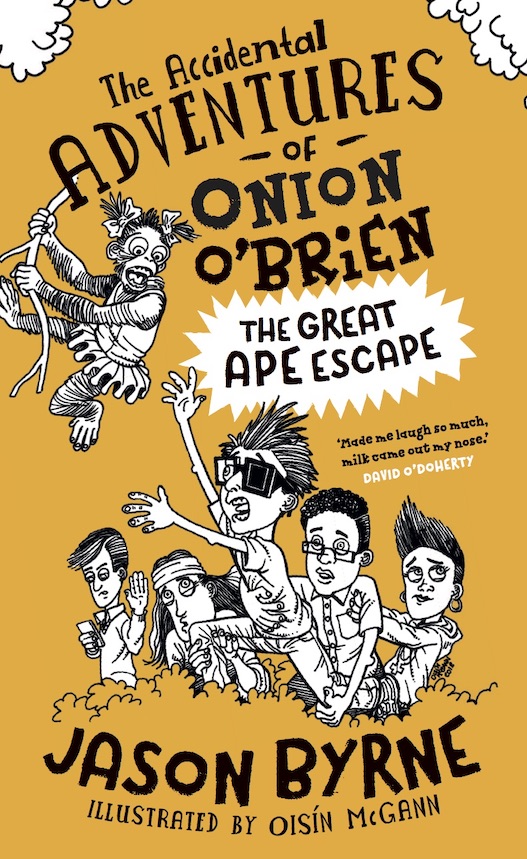
On the other hand, I have to be realistic about the industry I’m in, and when it comes to working on celebrity books and other publisher-led projects, I have some skin in that game too. Whenever there’s an outcry about celebrity books, it can often include criticism of everyone involved, illustrators and particularly writers, who are seen as collaborating with the enemy. While most of my books have been published in the traditional way, where I pitched a manuscript, I’ve also had plenty where a publisher contacted me with either a concept or a ready-made commission, and where it has suited me, I’ve taken it on. Because making books is an inconsistent business and I have bills to pay. It can also result in working on some really interesting projects.
A few years back, an editor at Gill Books contacted me to ask if I’d work on a series of books with Jason Byrne. Jason, a comedian with international recognition, had the manuscript for a children’s book, and they wanted to partner him with an illustrator, but as this was his first time, they also wanted someone who had experience of children’s books as a whole, and could contribute to the editing. They’d published a successful book about his childhood for adults, Adventures of a Wonky-Eyed Boy, and saw the potential for a children’s book with the same flavour. We had a meeting, talked through what he had, I had some input on the ground level, and so was born the first book in The Accidental Adventures of Onion O’Brien series, The Great Ape Escape. Two more books would follow, The Head of Ned Belly and The Secret Scientist. They were good craic to work on, Jason was full of the kind of visual ideas that are great material for illustration, and I got proper credit as the artist, with my name on the front covers – something you can’t always count on, though things are improving in that direction.
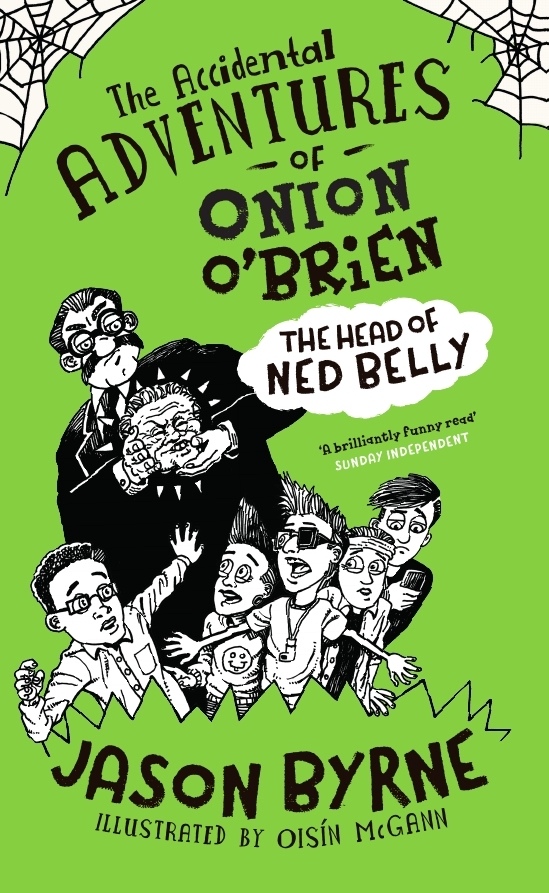
Situations like this are more straightforward for illustrators, who are used to treating what they do as a trade; you do a job and you get paid for it and, hopefully, some royalties into the bargain. But people might be surprised at how many work-for-hire jobs writers take on too, either as credited authors or ghostwriters. One of the things that leaves a sour taste in the mouths of people with celebrity books in particular, is that you could have someone cashing in on their fame by taking credit for a writer’s work – and usually, taking most of the money into the bargain. Ghostwriters will often be paid a flat fee, rather than an advance and royalties, so they have no stake in the success of the book, though that may be no bad thing for the writer. If your own books don’t provide you with a living (which applies to the majority of writers in publishing) getting paid for writing a book for someone else is often a better option than having to go find a part-time job doing something else, even if you don’t get the credit for it. This is not a new thing; ghostwriting and other work-for-hire writing projects have been around for as long as publishing has.
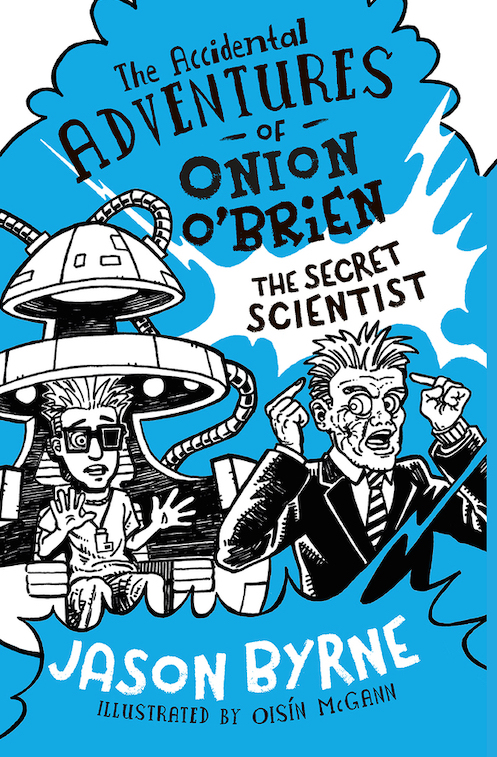
Publishing is a business, a capricious one that works on a pretty tenuous basis, on narrow margins, where you’re constantly trying to sell a product that appeals to very personal, individual tastes that are nearly impossible to predict, a product which has to be constantly created from scratch. In the children’s books market, you also have to take into account that your audience is constantly growing up and away from the books you create for them. Every new writer you pitch into the market is a gamble, there is no safe bet in publishing, outside of a tiny proportion of bestselling names, and so publishers look for new writers to bring on board who already have a following, fans who will buy a book simply because it’s written by that person.
Sometimes the celebrity will write the book themselves, and if it succeeds on its own strength, then I applaud them for it. They will often get a higher than normal advance because the argument is that they’re bringing a ready-made audience to the deal. It will still probably work out much less than they’re paid in their own field, and the publishing team will often do most of the heavy lifting in terms of producing a finished product. You would assume that if a publisher invests a large chunk of money in a new author, then they’ll put the marketing resources in to back them up, and there is truth to this, but really, what they’re counting on is that celebrity’s own fan base. That is what they’re paying for, after all. And the media will be more likely to give them time too. It is often easier for a celebrity writer to get interview spots on mainstream radio and television, versus people who . . . who just write books for a living.
Sometimes however, that celebrity won’t do anything at all. This is not an exaggeration. Years ago, I was asked by a publisher if I’d be willing to ghostwrite a teen spy novel – with a view to creating a series – that would be sold under the name of one of the famous ex-SAS guys who had books out at that time (I wasn’t told which one, though it wasn’t hard to figure out). It sounded interesting, and it could have been a good association, seeing as I was writing for a similar audience. Though the money they were offering wasn’t great, I could have pushed on it, but there were just a couple of key things I needed to know first: 1) Would I be credited inside the book or would my involvement have to be kept secret? 2) How much would the ex-soldier be contributing to the work?
I was told that my involvement couldn’t be mentioned anywhere, and I would be writing it entirely on my own; he wouldn’t even contribute to the research, which would be substantial for this kind of novel. I’d been involved in publishing in one form or other for most of my working life, and even I was taken aback at the cynicism of this. I still wasn’t completely against doing it, but I think they were talking about two or three books to start off, which would have taken away from my own writing in a big way for at least a year, without contributing anything to the progress of my career. So I turned it down, and somebody else wrote it for him.
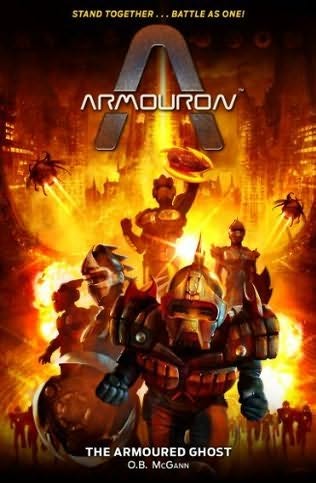
There is no set way of engaging a writer, or crediting them. When I was commissioned by Random House to write four middle-grade science fiction books for the Armouron series, setting up an origins story for a series based on a range of toys from Bandai, it was also meant to be part of a pitch for a television series. They asked me to use a slightly different name, to differentiate these books from my normal ones, which I was happy enough to do, so those are published under the name ‘O.B. McGann’. I’ve written a bit more about that here.
There was another time when I was commissioned by Penguin to write two novels as origin stories for the online game Kings of the Realm, fantasy adventures for an adult audience set in a kind of Tolkien-style world. There was a lot of people getting an input into this, and at first, it wasn’t clear if they wanted me to use a pseudonym or not. As we got closer to the release date, they made the odd decision of crediting me as the author, but not putting my name on the cover, which is something I’ve never seen before. The cover of the first book, War’s Harvest, didn’t feature the name of the author (and still doesn’t), and nor did the second one, Cruel Salvation, later that year, although I was credited properly when War’s Harvest was published in French and German editions.
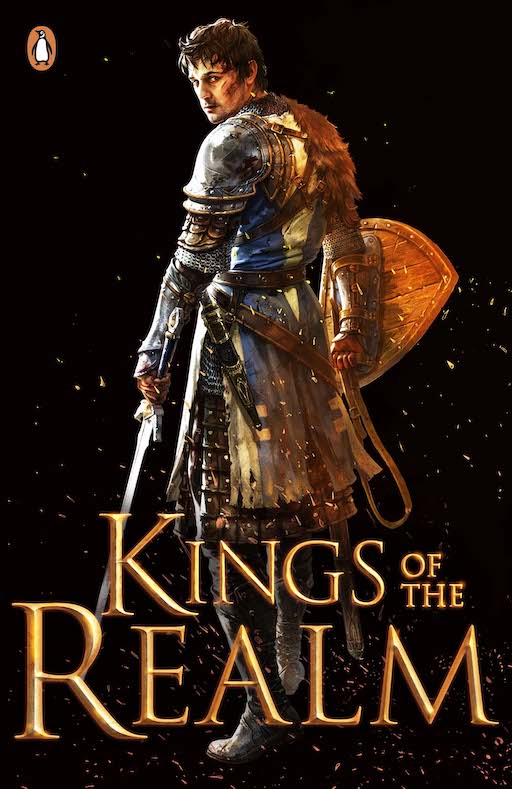
I enjoyed working on all of these books, they were something different, a valuable experience, and I got to work with some excellent people along the way. In the case of both Kings of the Realm and Armouron, there were big marketing plans to be put behind these properties, but due to outside circumstances, neither got the launch that I was told they’d get. The hard reality is that if you’re going to sell books, the most common way is to push the author out in front, but in both cases, the decision was made at a pretty late stage in the process, and I wasn’t very involved in the promotion when they were released.
I don’t take these marketing decisions personally, and I don’t think that this kind of project is necessarily going to produce a bad book. I care about everything I write, and I always, always want to show my reader a good time. When I was a kid, one of my go-to series was The Hardy Boys, the mystery series by Franklin W Dixon. Except I learned much later, that there never was a Franklin W Dixon, it was a pseudonym used by a whole bunch of ghostwriters who were commissioned by the publisher to produce the books, starting in 1927 and stretching into the 1990s. I loved those books, they really appealed to an Irish kid with a hungry imagination who was short on reading material, combing through the library and secondhand bookshops in Drogheda for stimulation, and to be honest, I never had much interest in what the writer was like as a person, as long as ‘he’ kept writing them. Another very similar series I liked at the time was Alfred Hitchcock and the Three Investigators, created by Robert Arthur, but later taken over by other writers, in which Alfred Hitchcock made cameos as a character. This was the first time I was aware of a celebrity putting their name to something I knew they hadn’t written, though I assumed he was still involved in some way – in fact, Random House had just paid him for the use of his name.
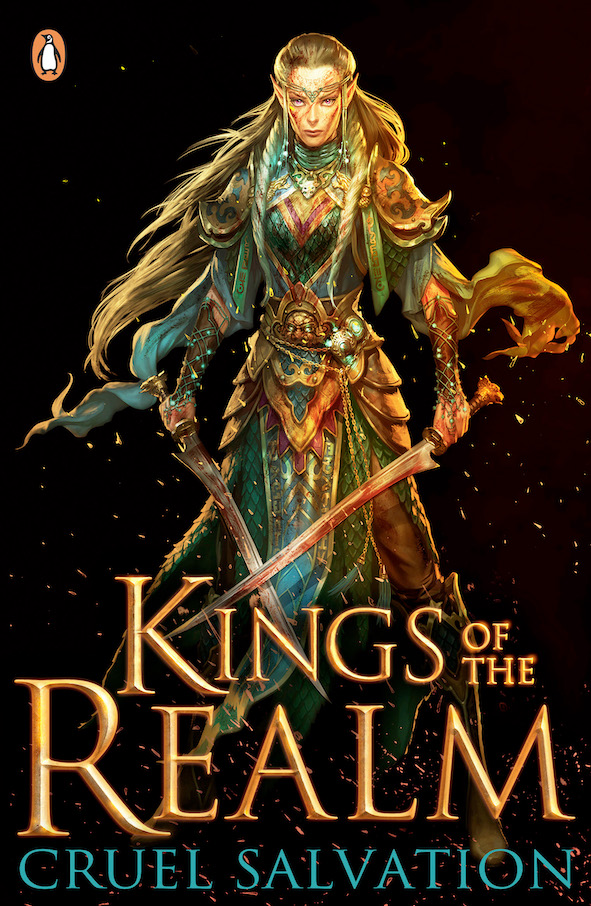
If you’re going to have a long-running series produced by different writers, it can make sense for everyone to write under the same name. Books are usually shelved according to the author’s name, so if there are different writers, books in the same series won’t be shelved together. This is why Little Island used a pseudonym for their Nightmare Club series. I wrote The Wolfling’s Bite, but I wrote it under the name Annie Graves, just as the other writers of the series did. Our identities weren’t a secret however, we’re each mentioned in the introduction of our books and we weren’t expected to keep quiet about it – we did events for these books. I even made a joke about that little brat, Annie Graves, taking credit for my work. The use of a single pseudonym was simply a pragmatic sales decision.
You might think of these kinds of work-for-hire books as hack writing, there are some who would turn up their nose at work like this, but writers have honed their skills and founded careers on this stuff. Back in the 70s and 80s in America, you could make a decent living as a commercial fiction writer working for flat fees. Projects like this are, and have always been, an integral part of the industry. You might view a celebrity book produced by a ghostwriter as a vanity project, a worthless piece of merchandise or a subversion of publishing, but when you get right down to it, it’s just business. And for a ghostwriter, it’s a paying job supplementing what might be an otherwise unstable and insecure income. Using a famous name to sell books is a time-honoured practice in publishing.
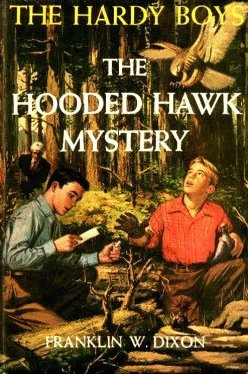
But there’s been a change since social media started playing such a big part in the marketing of books, and its effects are growing over time. Simply put, there are a lot more celebrities out there nowadays with a media presence, and while most celebrity books don’t actually pay off (and bigger advances mean a bigger gamble), the hit rate is higher than if you’re pushing a normal, professional author who might have a solid track record in their writing, but can’t guarantee decent sales. Put simply, it’s seen as a bigger cost, as a greater proportion of the publisher’s money is invested in that release, but also a safer bet, and because the phenomenon of social media has provided every well known personality with their own broadcast medium, the publishing world is now edging steadily in that direction.
People in publishers love books, but they have to make money to stay in business, and every loss is a risk to narrow margins. And the more that the larger publishers are being run by media conglomerates, as the Big Five are, the more the people making the decisions about what to publish will be constantly reminded of the numbers, and with the best will in the world, those numbers will keep influencing those decisions.
I was recently approached by a publisher who had decided there was a gap in the market for a particular type of book for young readers. They had a subject and an age range, and they had a sports celebrity on board to brand the potential series . . . they just needed someone to do the actual writing. The celebrity had a high profile in their sport, but hadn’t proposed this project, it was being driven by the publisher. As I’ve already said, this is just the environment authors have to work in now, and I agreed with the publisher’s view that there was an opportunity to do something interesting here. Also, I have kids to feed. The celebrity would provide some much-needed background knowledge into a sport I knew little about. I agreed to take it on, but I wanted to be credited as co-author – which is becoming pretty common when sports personalities get into children’s publishing – I wanted royalties and I wanted to illustrate the book.
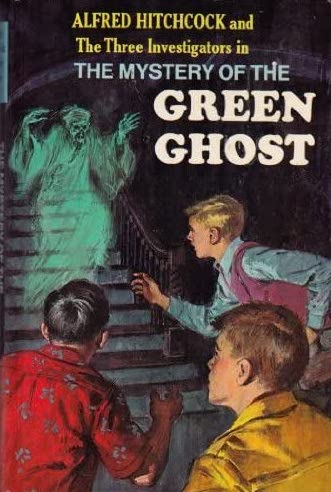
The publisher was happy with the terms, so they sent my agent a draft contract and we arranged our first meeting. I already had some basic ideas for the series, but I wanted the sportsperson to be invested in the book, so the meeting was very much about seeing what I could get out of them, to base the first story as much as possible on what they gave me. It all seemed to go well, although they still didn’t provide much in the way of ideas, and afterwards, I got stuck into writing up a basic outline.
Just a few days later, the publisher called me in a state of shock, to tell me that our celebrity had just signed with another publisher, who had apparently offered them a better deal. This kind of pulling out of a deal after you’ve started the initial work is rare enough in this business, so we were both really taken aback, and the publisher was very embarrassed. Let me be clear about this: there had been no proposal for these books until that publisher took it to this sportsperson, who had provided very little at our meeting to base any story on – I was going to be coming up with the ideas, and hopefully incorporating their expertise. At the point where the celebrity accepted a ‘better offer’ from the second publisher, there had been no book to offer on. Two different publishers had sought out this person, wanting to make books with someone who hadn’t written anything, and had made no effort to get into children’s publishing.
I still had what I thought was a good pitch, and was still willing to go ahead with the books, but it was felt that, without the famous name, the very same books, presumably produced for less money now, wouldn’t have the same reach. It was a case where having a celebrity on board was seen as the default setting.
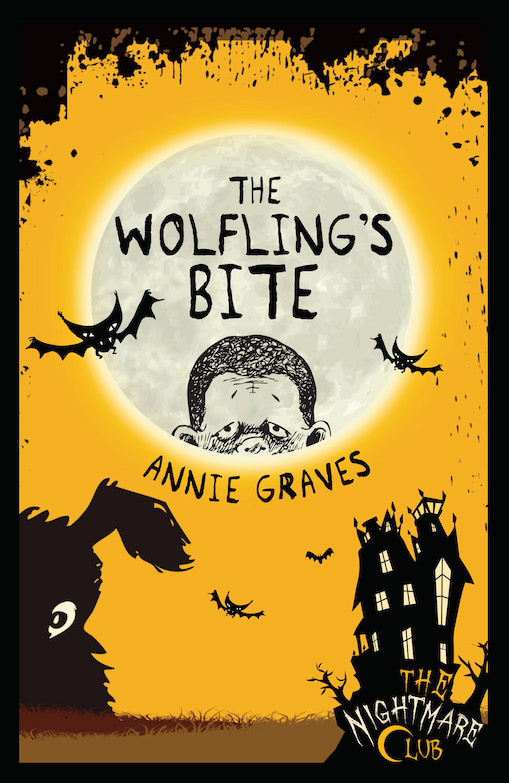
Again, I don’t take any of this personally – I know how the business works. Now, having established my mercenary credentials, as someone who takes a pretty pragmatic view of the writing trade, I still find this trend deeply disturbing. You only have to look at the names that dominate the children’s sections in bookshops, particularly in middle-grade, the ones that are stacked in piles on the discount tables and are face out on the shelves, and it’ll tell you what’s happening to our industry. With an oversupply of writers and writing in publishing, I think there’s a belief that it’ll be easy enough to find someone to write a book if you have a big name to sell it. And the fact that you’ll still be taking a risk and that you’ll be paying over the odds for that name, for someone who most likely won’t be very committed to the books? That doesn’t seem to be enough of a deterrent. On top of this, many of the names being used to promote books are appealing to adults who will recognize those names, not children. There is an implication that children are of secondary importance when it comes to who we’re trying to appeal to.
On the face of it, it may seem like a savvy, if ruthless approach to publishing, one that’s partly a response to, and reinforced by, the discounting race to the bottom and supermarket sales contributing to larger print runs and bulk selling, but I can’t see how this is good for publishers in the long run either. First of all, it really only works for the larger publishers that can attract those names with hefty advances, so it’s serving to widen the gap between the top few percent of books and the rest. And even then, everyone is being pressed by rising printing costs, steeper discounting and finding themselves subject to Amazon’s growing monopoly of the online market. All of that is the demand side; the beast they have to feed. And they can probably maintain it, with difficulty – especially for small publishers – as long as they have plenty to feed it; the supply side. Fortunately for them, publishing will never run out of writers, even if the widening gap in promotion and sales means steadily losing experienced mid-list authors that have to be replaced with new ones – writers who are finding it ever harder to get a foothold, and build any kind of career.
There is also the value of those careers to consider. Because even with commercially orientated jobs, those writers don’t just need paying gigs, they need the hope that the commissioned work will contribute to achieving their ambitions, or they just won’t stick with it. There aren’t enough work-for-hire jobs out there for writers to make a steady living now, and if someone isn’t getting recognition for writing something, it’s not contributing much to their career long-term, so for them to stick around, you’re counting on their hope that this work will help them break through in their own right. If they don’t have enough paying work, and they don’t have the hope of breaking through with their own work, they will not stick with it. It’s just too hard. The less of that hope they have, the fewer of those writers you’ll get, and the best ones will look elsewhere, which means a drop in expertise and experience, and a drop in quality.
Using a high profile name to sell books is completely understandable, and you could argue that each situation has to be judged on its own merits, but it will inevitably lead to the name, the brand, being valued over the quality of the writing. Is this really the model we want to become standard operating procedure in publishing? Because all too often, these books are a sideline, a handy little earner and a promotional tool compared to the kind of money you can make in other industries. So are we in the book business, or are we just part of the merchandise arm of another, real business?
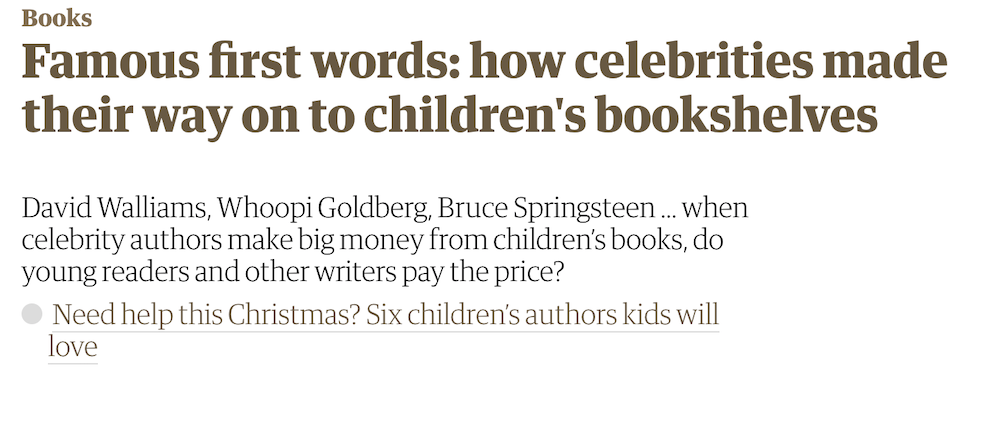
More importantly, it feels like this reliance on personalities from other industries to provide promotion and profit for children’s books reveals a very short collective memory. For most of the time that there has been a recognizable children’s book industry, it has been viewed as the childish, simple-minded cousin of serious literature. When I broke into this business about twenty years ago, it was going through a boom, not just commercially with serious money being made, but critically, with widespread recognition that children’s books could be challenging, influential, profound and groundbreaking. Have we forgotten how hard it was to achieve that change of perception? Isn’t it the height of irony that the reason so many celebrities want their name on the front of a children’s book is because it enhances their reputation. The medium has been lifted up in the last few decades, and not only has its quality been recognized, but so has the importance of providing the very best books we can for children. Those celebrities are benefitting from an entire industry’s climb towards the heights it has reached now, where it is seen as one of the most energetic, profitable and forward-looking areas of publishing. Children’s books make up 10% of all books published in the UK, for instance, but they represent 29% of all books sold.
The public however, don’t see the work done behind the scenes, and they don’t know how hard that struggle has been. Have we really spent decades gaining that credibility, building up respect for an industry that was looked down upon for so long, only to surrender our principles now and say to the public: ‘Yes, anyone can write a children’s book! You don’t need expertise or discipline or experience – it’s who you are, not how well you write that counts. These are not books to be taken seriously, they are a branding exercise, bonus materials for the followers of a media personality!’ Not only does this undermine the work of even the most successful children’s writers, it undermines children’s books as a whole. It is a statement that we are producing work for a gullible and undiscerning audience, and that is a perception I thought our industry had put behind it.
But it is not very far behind us, and this position we hold is a fragile one. Every children’s writer will recognize that question: ‘Have you ever thought about writing a proper book?’ Our industry wants others to take what we do seriously, but that’s going to become increasingly more difficult, if we don’t look like we’re taking ourselves seriously.
One of the things I love most about the children’s books community is the fervent belief that children should not be treated as mere consumers or as unfinished adults, the belief that they are worthy of the very finest books publishing can offer.
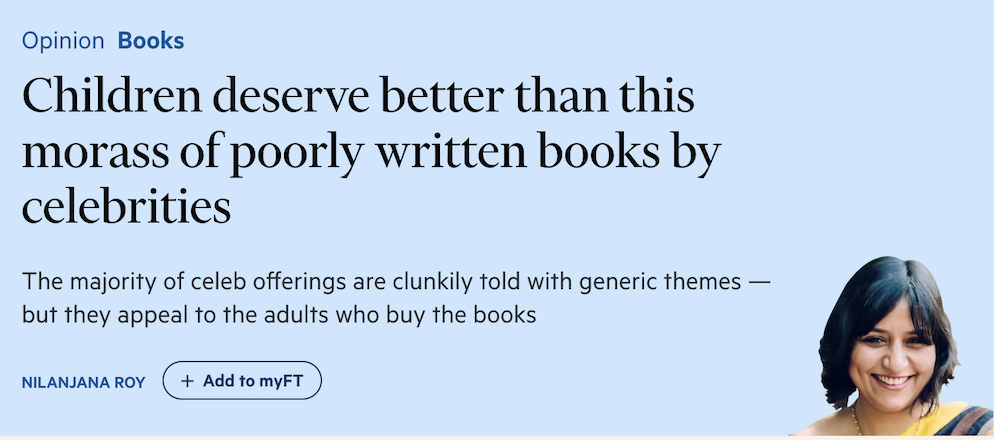
And the reason that so many rich and famous people want their name on the front of a children’s book is because they are made by an industry fuelled by that belief. That is why they are a boon to anyone’s reputation. Yes, there is a place for some profit-driven sleight of hand, there always has been, but we’re at a point where it’s starting to dominate the mainstream, and in doing so, it risks undermining the respect it has taken this industry decades to achieve. Convincing the world that any famous person can write a book will destroy the very credibility, cultural enrichment and good will they hope to benefit from.
At best, a celebrity children’s book can be a savvy business move that hopes to create a tentpole title to raise the publisher’s income. At worst, it is the cheap plastic toy taped to the front of a magazine. The more we make, the more it will become the latter, and not the former, and that will affect us all.
We need to be more deliberate about how we shape the future of our industry.
